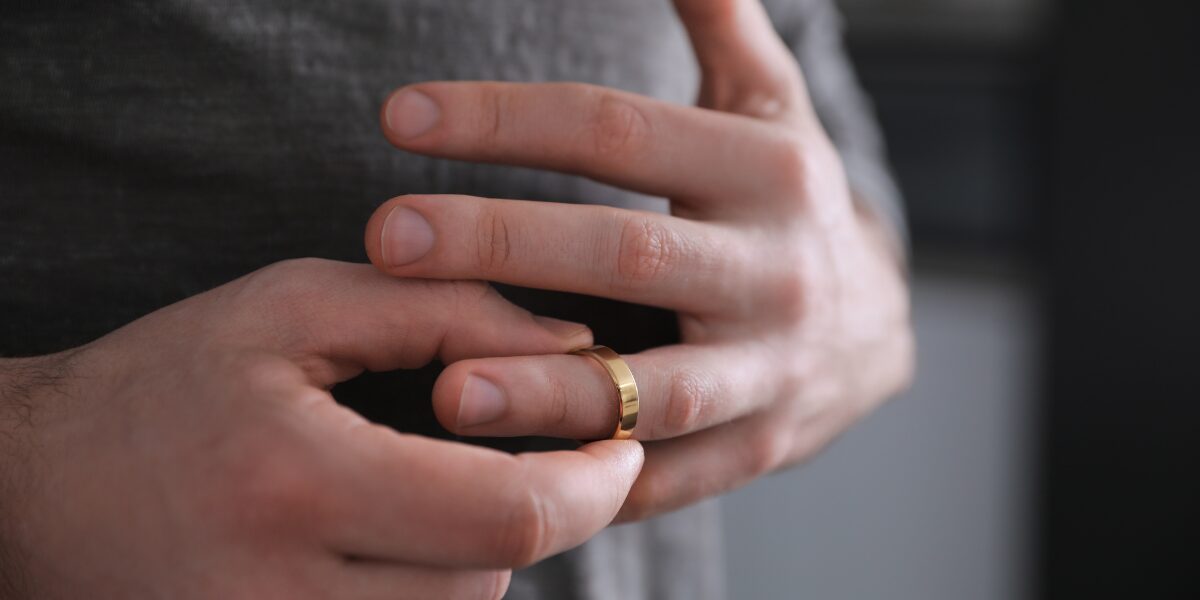
Myth-busting: What you need to know about prenuptial agreements
A nuptial agreement is a contract entered into by spouses or civil partners to regulate the ownership of money, property, assets and responsibility of debt.
Sadly, none. There is no legal concept of the common law wife or husband in English law. This means couples who cohabit have fewer legal rights than those who are married when they separate. The length of the relationship makes no difference, which can lead to great unfairness. Cohabitees obligations to their partner will depend on Land, Contract and Trust law.
A home can be owned either as Joint tenants or Tenants in Common, this is a very important distinction if a couple separate or one of them dies.
Joint tenants means that each of the owners (and there can be more than two) has an equal share in the value of the property. If one owner dies their share does not pass under the terms of their Will but automatically to the remaining owner. If the home is sold then each party gets an equal share of the net proceeds.
Tenants in common means that each party has a defined share in the value of the home. Typically this is an equal share but it can be unequal. If the intention is to have unequal shares then it is prudent to have a written Trust document settling out the details; these can be more complicated than first thought. Each owner can leave their share in the home to pass under their Will.
Where a home is held as joint tenants and one party wishes to change to hold it as tenants in common then they can serve a Notice of Severance. It is important to register the change with the Land Registry.
Much depends on why the home is one party’s name, whether it was intended to be a joint home and whether the non-owning party contributed towards the cost of the home to their detriment. The law can infer from words and conduct that a property is held on trust and can declare how the value in a home can be divided; these are referred to as resulting trustsand constructive trusts. If promises of joint ownership were made and a person acting to their detriment in reliance on those promises, then the law can stop the maker of the promise from going back on their word; this is called proprietary estoppel. These are very complex legal concepts; how the law is applied depends a great deal on the facts in each case. Often good cases faulter due to a lack of documentary evidence.
Sadly no, unlike married couples there is no obligation to pay maintenance on separation. However, child maintenance can be claimed and applications made under Children Act, schedule 1 to benefit a child, see child maintenance.
There are now more and more couples living together who are not married both with and without children. Whilst there are some legal structures in place to provide protection for cohabiting parties, the best way to ensure you are protected in the event of a relationship breakdown is to have a cohabitation agreement. This could ensure that you are able to continue living in your house while your children are under 21 or provide the mechanisms for paying bills and the like.
Cohabitation agreements are also useful where parties are entering new relationships and want to secure their pre-owned assets, for example where it is intended assets will pass to children of a previous relationship, or for younger couples where contributions have been made by parents towards a house purchase.

A nuptial agreement is a contract entered into by spouses or civil partners to regulate the ownership of money, property, assets and responsibility of debt.

The Ministry of Justice has said the increasing court fees said to be vital to ongoing court work for all those who seek justice, however,

No more unreasonable behaviour petitions, no more adultery petitions. As from April 2022, couples who want to divorce and then co-parent on an amicable basis

How does the court calculate child maintenance? The starting point for calculating child maintenance payments will always be the CMS formula. This formula applies on




© Gordons Partnership is the trading name of Gordons Partnership 2020 Limited a company registered in England & Wales (Company Number 12464371).
Registered office is at First Floor, 1 Chancery Lane, London WC2A 1LF. VAT No: GB 629 857 388 - Site by WBJ Designs
© Gordons Partnership is the trading name of Gordons Partnership 2020 Limited a company registered in England & Wales (Company Number 12464371).
Registered office is at First Floor, 1 Chancery Lane, London WC2A 1LF. VAT No: GB 629 857 388 - Site by WBJ Designs
We use cookies on our website to give you the most relevant experience by remembering your preferences and repeat visits. By clicking “Accept All”, you consent to the use of ALL the cookies. However, you may visit "Cookie Settings" to provide a controlled consent.
| Cookie | Duration | Description |
|---|---|---|
| _GRECAPTCHA | 5 months 27 days | This cookie is set by the Google recaptcha service to identify bots to protect the website against malicious spam attacks. |
| cookielawinfo-checkbox-advertisement | 1 year | Set by the GDPR Cookie Consent plugin, this cookie is used to record the user consent for the cookies in the "Advertisement" category . |
| cookielawinfo-checkbox-analytics | 11 months | This cookie is set by GDPR Cookie Consent plugin. The cookie is used to store the user consent for the cookies in the category "Analytics". |
| cookielawinfo-checkbox-functional | 11 months | The cookie is set by GDPR cookie consent to record the user consent for the cookies in the category "Functional". |
| cookielawinfo-checkbox-necessary | 11 months | This cookie is set by GDPR Cookie Consent plugin. The cookies is used to store the user consent for the cookies in the category "Necessary". |
| cookielawinfo-checkbox-others | 11 months | This cookie is set by GDPR Cookie Consent plugin. The cookie is used to store the user consent for the cookies in the category "Other. |
| cookielawinfo-checkbox-performance | 11 months | This cookie is set by GDPR Cookie Consent plugin. The cookie is used to store the user consent for the cookies in the category "Performance". |
| CookieLawInfoConsent | 1 year | Records the default button state of the corresponding category & the status of CCPA. It works only in coordination with the primary cookie. |
| elementor | never | This cookie is used by the website's WordPress theme. It allows the website owner to implement or change the website's content in real-time. |
| viewed_cookie_policy | 11 months | The cookie is set by the GDPR Cookie Consent plugin and is used to store whether or not user has consented to the use of cookies. It does not store any personal data. |
| Cookie | Duration | Description |
|---|---|---|
| __cf_bm | 30 minutes | Cloudflare set the cookie to support Cloudflare Bot Management. |
| Cookie | Duration | Description |
|---|---|---|
| ypsession | 1 month | Yumpu sets this cookie to store a unique ID string for each chatbox session. This allows website support to see previous issues and reconnect with the previous supporter. |
| yumpu_slc | 7 days | Yumpu sets this cookie to determine the preferred language and country setting of the visitor. This allows the website to show content most relevant to that region and language. |
| Cookie | Duration | Description |
|---|---|---|
| _ga | 2 years | The _ga cookie, installed by Google Analytics, calculates visitor, session and campaign data and also keeps track of site usage for the site's analytics report. The cookie stores information anonymously and assigns a randomly generated number to recognize unique visitors. |
| _ga_* | 1 year 1 month 4 days | Google Analytics sets this cookie to store and count page views. |
| _ga_6K1Y9P2WGY | 2 years | This cookie is installed by Google Analytics. |
| _gat_gtag_UA_* | 1 minute | Google Analytics sets this cookie to store a unique user ID. |
| _gat_gtag_UA_133165545_1 | 1 minute | Set by Google to distinguish users. |
| _gat_UA-* | 1 minute | Google Analytics sets this cookie for user behaviour tracking. |
| _gat_UA-133165545-1 | 1 minute | A variation of the _gat cookie set by Google Analytics and Google Tag Manager to allow website owners to track visitor behaviour and measure site performance. The pattern element in the name contains the unique identity number of the account or website it relates to. |
| _gcl_au | 3 months | Provided by Google Tag Manager to experiment advertisement efficiency of websites using their services. |
| _gid | 1 day | Installed by Google Analytics, _gid cookie stores information on how visitors use a website, while also creating an analytics report of the website's performance. Some of the data that are collected include the number of visitors, their source, and the pages they visit anonymously. |
| CONSENT | 2 years | YouTube sets this cookie via embedded youtube-videos and registers anonymous statistical data. |
| vuid | 2 years | Vimeo installs this cookie to collect tracking information by setting a unique ID to embed videos to the website. |
| Cookie | Duration | Description |
|---|---|---|
| IDE | 1 year 24 days | Google DoubleClick IDE cookies store information about how the user uses the website to present them with relevant ads according to the user profile. |
| test_cookie | 15 minutes | The test_cookie is set by doubleclick.net and is used to determine if the user's browser supports cookies. |
| VISITOR_INFO1_LIVE | 5 months 27 days | A cookie set by YouTube to measure bandwidth that determines whether the user gets the new or old player interface. |
| YSC | session | YSC cookie is set by Youtube and is used to track the views of embedded videos on Youtube pages. |
| yt-remote-connected-devices | never | YouTube sets this cookie to store the video preferences of the user using embedded YouTube video. |
| yt-remote-device-id | never | YouTube sets this cookie to store the video preferences of the user using embedded YouTube video. |
| yt.innertube::nextId | never | This cookie, set by YouTube, registers a unique ID to store data on what videos from YouTube the user has seen. |
| yt.innertube::requests | never | This cookie, set by YouTube, registers a unique ID to store data on what videos from YouTube the user has seen. |
| Cookie | Duration | Description |
|---|---|---|
| AVPUID | 1 year | No description available. |
| SESSION | session | Description is currently not available. |
| ypsitetrack | 1 year | Description is currently not available. |